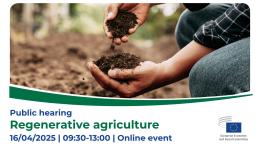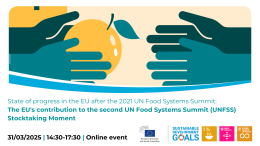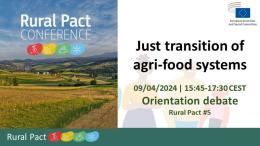European Economic
and Social Committee
Sustentabilidade alimentar
A alimentação está no centro das nossas vidas e faz parte integrante da cultura europeia. No entanto, os alimentos que consumimos, a forma como os produzimos e as quantidades desperdiçadas têm um grande impacto na saúde humana, nos recursos naturais e na sociedade como um todo:
- os cidadãos – e, em particular, as crianças – sofrem cada vez mais de excesso de peso e obesidade devido a dietas pouco saudáveis;
- os agricultores e os trabalhadores não recebem um preço justo pelo seu trabalho;
- um terço dos alimentos é perdido ou desperdiçado ao longo da cadeia alimentar;
- os efeitos do modelo atual de produção e consumo dos alimentos repercutem-se de forma dramática no ambiente, nomeadamente nas alterações climáticas, na perda de biodiversidade, na poluição do ar e da água e na degradação dos solos.
A pandemia de COVID-19 é um sinal de alerta para a mudança. A crise demonstrou que a obtenção de alimentos «do prado para o prato» está longe de constituir um dado adquirido e revelou a interconexão entre os intervenientes e as atividades em todo o sistema alimentar. São necessárias, mais do que nunca, cadeias de abastecimento justas, eficientes em termos de recursos, inclusivas e sustentáveis em todo o setor agrícola e alimentar, a fim de proporcionar os mesmos resultados aos cidadãos, agricultores, trabalhadores e empresas.
Há vários anos que o CESE é um dos principais defensores de uma política alimentar sustentável e abrangente. Este tipo de abordagem integrada e sistemática é fundamental para fazer face à natureza múltipla e inter-relacionada dos desafios que afetam os sistemas alimentares; para alcançar a sustentabilidade económica, ambiental e sociocultural; para assegurar a integração e coerência das políticas nos vários domínios de intervenção (por exemplo, na agricultura, ambiente, saúde, educação, comércio, economia e tecnologia); e para promover a cooperação entre os vários níveis de governação.









